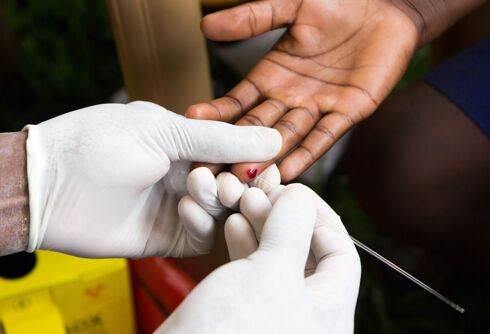An experimental HIV vaccine that uses the same technology as the COVID-19 mRNA vaccines from Moderna and Pfizer is showing promising results in both monkeys and mice.
A press release from the National Institute of Allergy and Infectious Diseases (NIAID) explained that monkeys who received a multiple doses of the experimental vaccine had their chances of contracting an HIV-like virus lowered by 79%.
Related: Hormone therapy lowers suicide risk for transgender young people
Scientists have spent decades struggling to create an HIV vaccine due to the speed at which the virus mutates and its remarkable ability to evade the immune system.
Never Miss a Beat
Subscribe to our newsletter to stay ahead of the latest LGBTQ+ political news and insights.
Dr. Anthony Fauci, president of NIAID, leader of the United States’ battle against COVID-19, and a co-author of this HIV vaccine study published in Nature Medicine, expressed optimism about the progress made by the mRNA technology.
“Despite nearly four decades of effort by the global research community, an effective vaccine to prevent HIV remains an elusive goal,” Fauci said. “This experimental mRNA vaccine combines several features that may overcome shortcomings of other experimental HIV vaccines and thus represents a promising approach.”
The trial involved a series of booster shots in macaques over the course of an entire year. The authors explained that not only did the trial yield a positive immune response, but also that “the vaccine was well tolerated with only mild adverse events after each inoculation,” with the most common side effect being loss of appetite.
Now the researchers are working on refining the process so less rounds of shots are needed, as they noted in Nature Medicine that “a vaccination regimen encompassing seven or more sequential immunizations would be difficult to implement in humans.”
The study’s leader Dr. Paolo Lusso, said that if the team is successful at reducing the number of boosters in a safe and effective way, they will then move on to a phase 1 trial of the vaccine in adult humans.
Don't forget to share:















